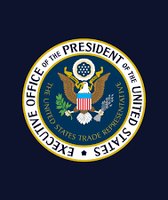Stand up for the facts!
Our only agenda is to publish the truth so you can be an informed participant in democracy.
We need your help.
I would like to contribute
With heated primaries on both sides of the aisle, most of our top-five fact checks from March focused on the two so-called outsider candidates: Democratic candidate Sen. Bernie Sanders and Republican frontrunner Donald Trump, along with one fact-check about former Secretary of State Hillary Clinton.
Viral image claims Clintons stole $200k in furniture, china and artwork from White House
An old complaint about Clinton, stemming from her days as first lady, is making a comeback. A conservative website called Radix News posted a graphic on its Facebook page that said: "After leaving the White House, Hillary was forced to return an estimated $200,000 in White House china, furniture and artwork that she had stolen."
There is a grain of truth here — the Clintons took some furniture and other items they had to return. But it was only worth about $130,000, and "stolen" is an inaccurate word to describe their actions. A congressional investigation found poor tracking of ownership and final disposition of gifts, which makes it hard to speak definitively of wrongdoing. In fact, two items the Clintons returned were ultimately sent back to them. Also, despite the graphic's use of the word "force," law enforcement did not come into play in this episode.
We rated the claim Mostly False.
Sign up for PolitiFact texts
Bernie Sanders says he consistently beats Donald Trump by bigger margins than Hillary Clinton does
To potential supporters who worry about his viability as a general-election candidate, Sanders has often pointed to polls showing him doing better against Trump than Democratic rival Clinton. On March 6, Sanders said, "Almost every poll has shown that Sanders vs. Trump does a lot better than Clinton vs. Trump … and, that’s true nationally."
Using the RealClearPolitics.com poll archive, we found seven national surveys since Jan. 1 that tested both Clinton and Sanders against Trump in a general-election contest. Of the seven polls in 2016 that tested both Democratic candidates, Sanders ran stronger against Trump in six of them.
However, polling experts told us that such results should be taken with a grain of salt, since polls taken well before the start of the general election contest have historically not been very accurate predictors of the November results. With that caveat, we rated Sanders’ claim Mostly True.
Bernie Sanders wrong to say, 'When you're white ... you don't know what it's like to be poor'
At a March debate in Flint, Mich., Sanders was talking about racial discrimination when he said, "When you’re white, you don’t know what it’s like to be living in a ghetto. You don’t know what it’s like to be poor."
Sanders' point was that white people haven’t had to contend with racism based on skin color. But when he switched to the subject of whites’ experience with poverty, he’s on weak ground. Sanders’ suggestion that white Americans haven’t experienced poverty is undercut by statistics calculated by the U.S. Census Bureau.
In 2014, there were actually more white Americans in poverty — 19.7 million — than members of any other group. If you look at the poor as a group, minorities are disproportionately represented. Still, the white population is large enough that the majority of the people in poverty are white. That’s been the case since at least 1970.
We rated Sanders’ claim False.
Fact-checking claims about Donald Trump's four bankruptcies
Trump touts his business acumen as evidence that he would be a successful president, but opponents have pelted Trump with criticism over his multiple trips to federal bankruptcy court. This fact-check we did on the subject back in September resurfaced this month.
When she was still running for the Republican nomination, former Hewlett-Packard CEO Carly Fiorina said Trump was "forced to file for bankruptcy not once, not twice, four times."
Trump’s four bankruptcies were Chapter 11 reorganizations of Trump-brand casinos and hotels, which are a type of bankruptcy designed to restructure businesses without shutting them down completely. Fiorina’s phrasing suggested Trump was personally responsible for the failures of these businesses, but in reality, much was out of Trump’s control — such as a struggling casino industry. But Trump is certainly not blameless. We rated Fiorina’s claim Mostly True.
Fact-checking Donald Trump's claims about Trump University
Many recent attacks on Trump have focused on allegations of false marketing by Trump University.
It wasn’t a real university; rather, it was mostly a seminar program that promised to teach its students the real estate secrets that turned Trump into a billionaire. With some participants paying as much as $35,000, the project drew investigations and lawsuits in at least three states.
Trump defended the program, saying, "We have an A from the Better Business Bureau." Trump University had an A grade at some point, but no longer. It had a D in 2010 and under its new name, had ratings ranging from C to B, with no ratings after March 2014. We rated Trump’s claim False.
Our Sources
See individual fact-checks.
















































